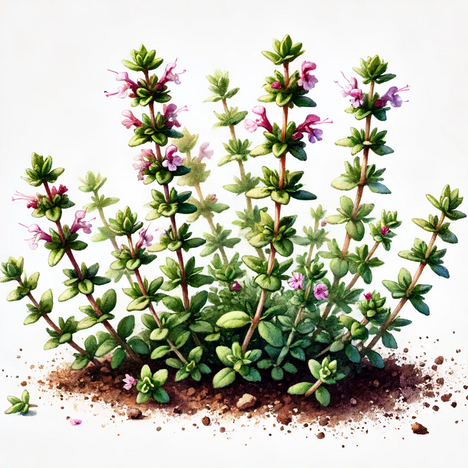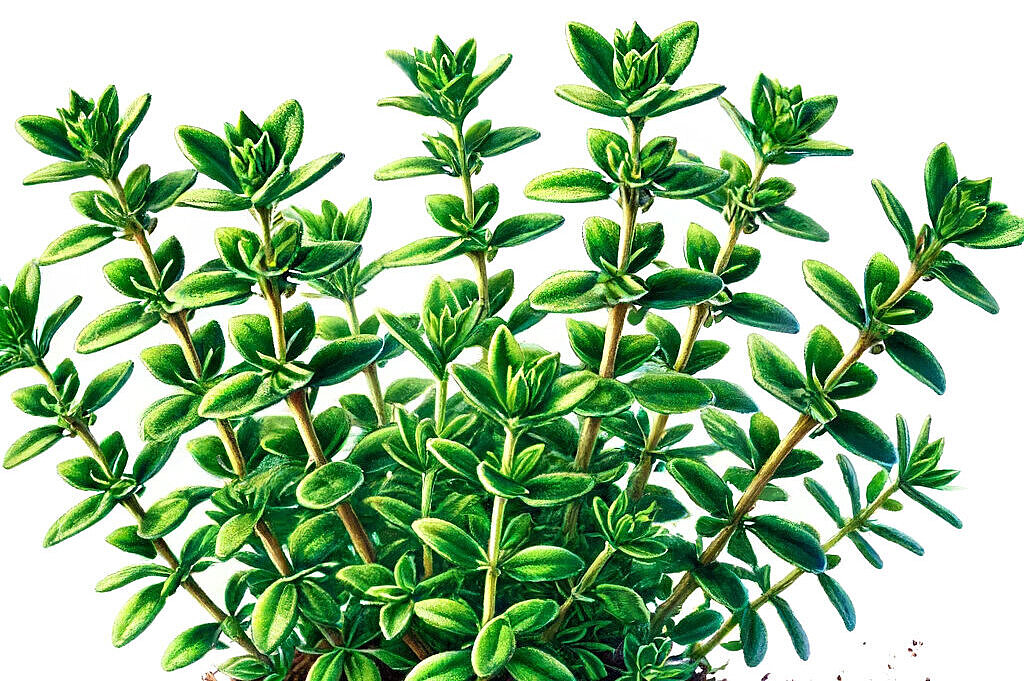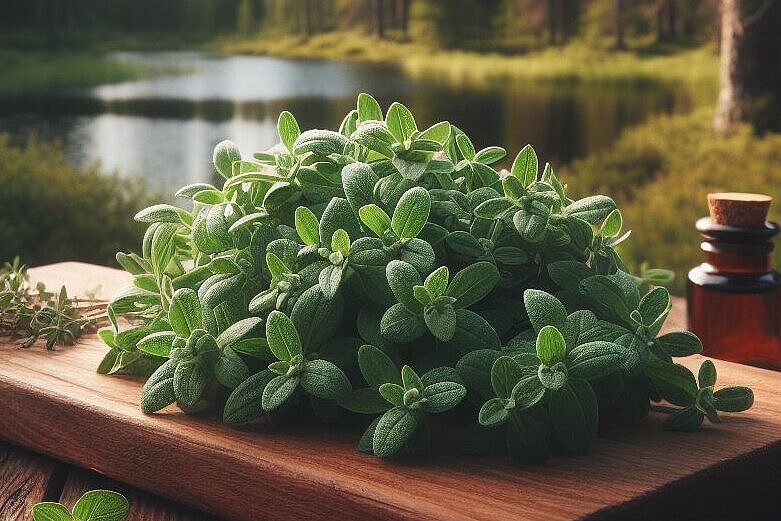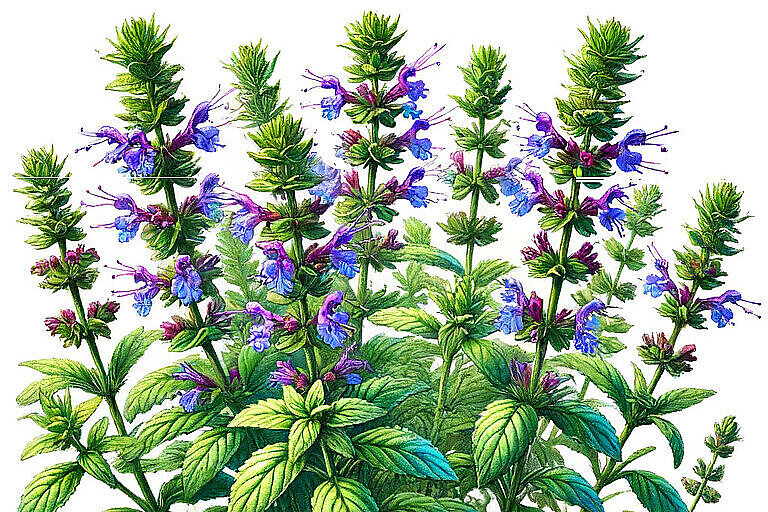Sand thyme

What is sand thyme?
Sand thyme, also known as quendel, is a perennial herbaceous plant from the labiate family. Sand thyme is characterized by its small, fragrant leaves and purple to pink flowers, which dominate the landscape, especially in the summer months. Due to its robust nature, sand thyme thrives particularly well in dry, sandy soils, which gives it its name.
Nutritional profile and health benefits
Sand thyme is rich in essential oils, flavonoids, phenolic acids and minerals, which together can form a powerful health package for dogs. Here are some of the potential benefits that sand thyme could provide for your dog:
Digestive support
The essential oils contained in sand thyme, particularly thymol, can help to promote healthy digestion. They have an antispasmodic effect and help to alleviate digestive complaints such as flatulence or discomfort.
Natural anti-inflammatory properties
Thanks to its anti-inflammatory properties, sand thyme can help to reduce the discomfort of conditions such as arthritis, which can be particularly beneficial for older dogs.
Supporting the respiratory tract
The antiseptic properties of sand thyme can also support your dog's respiratory system by helping to relieve coughs and other respiratory problems.
Possible disadvantages and risks
Despite its many benefits, there are also some points to be aware of when using sand thyme for dogs:
Overdose
As with many herbs, an overdose of sand thyme can lead to indigestion and other undesirable side effects. It is important to know the correct dosage and not to exceed it.
Allergic reactions
Some dogs may be allergic to sand thyme or its components. Watch your dog closely when giving him sand thyme for the first time.
Interactions with medication
Sand thyme can interact with certain medications. If your dog is already taking medication, you should speak to a vet before introducing sand thyme into their diet.
Sand thyme is a fascinating herb that is not only used in the kitchen, but also in natural dog care. Its health-promoting properties can help improve your dog's well-being when used and dosed correctly. However, as with any supplement to your dog's diet, it is important to use moderation and pay attention to your four-legged friend's signals. With the right approach, sand thyme can be a valuable addition to your dog's health and well-being.
Properties 12
Are you looking for other ingredients with a specific property?
Just click on them to find more.
If you notice any signs of hypersensitivity or poisoning in your dog, you should see your vet immediately. We are not a substitute for a vet, but we try to be as accurate as possible. Every dog reacts differently and we recommend you get a second opinion or consult your vet if in doubt.
Stay healthy and take good care of your four-legged friend!😊
Similar to Sand thyme
Thyme belongs to the labiate family and grows mainly in the Mediterranean region. It has small green leaves and pink or white flowers that attract many bees. Thyme contains essential oils such as...
Lemon thyme is a special variety of common thyme that stands out due to its characteristic lemony scent and taste. This plant belongs to the labiate family and is often used in the kitchen to add a...
Oregano is a herbaceous plant from the labiate family. It is native to Europe, the Mediterranean region and parts of Asia. Oregano is often used as a spice in cooking and is known for its strong...
Hyssop (Hyssopus officinalis) is a perennial herbaceous plant that belongs to the Lamiaceae family. Originally from the Mediterranean region, hyssop is now cultivated and appreciated worldwide. The...



